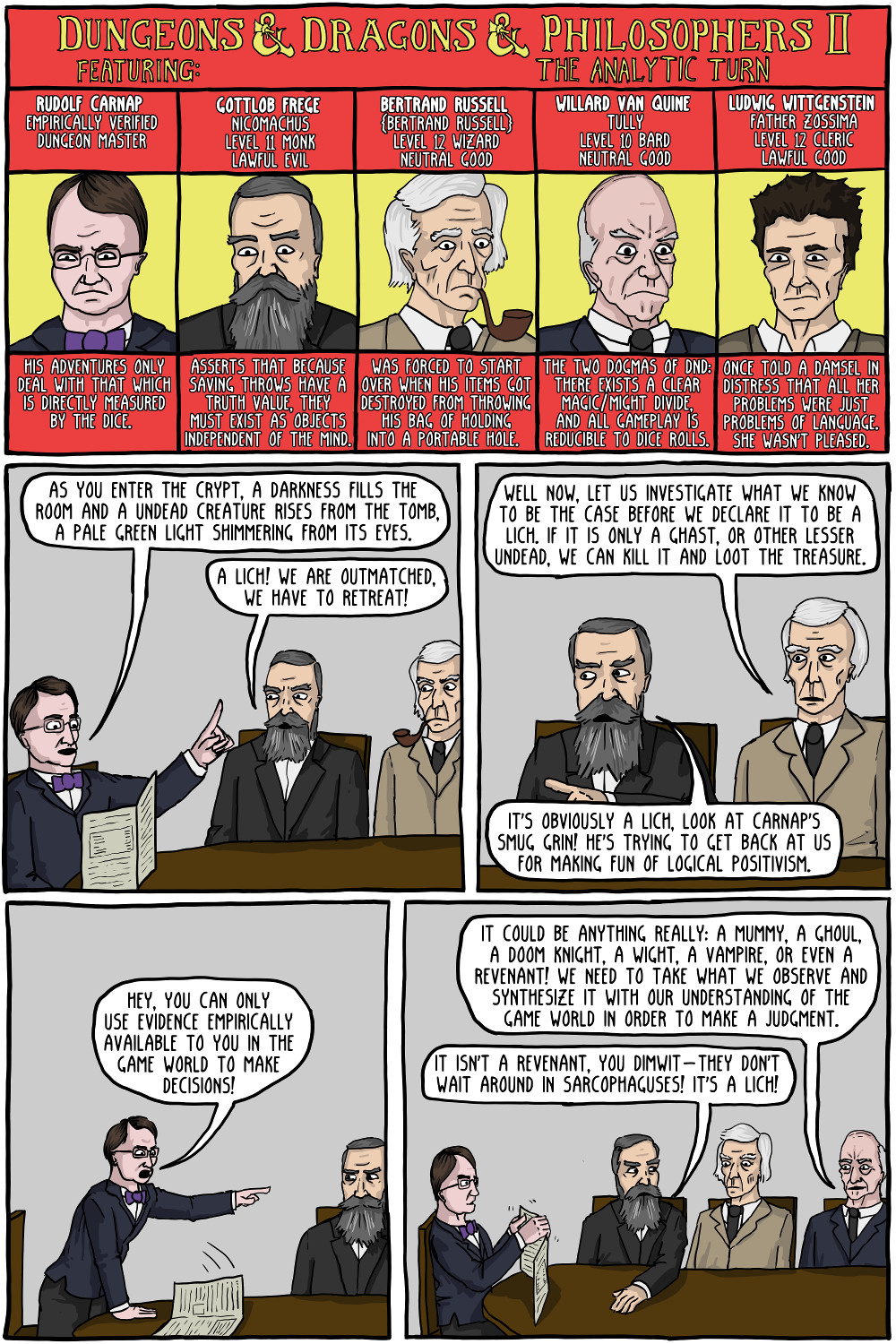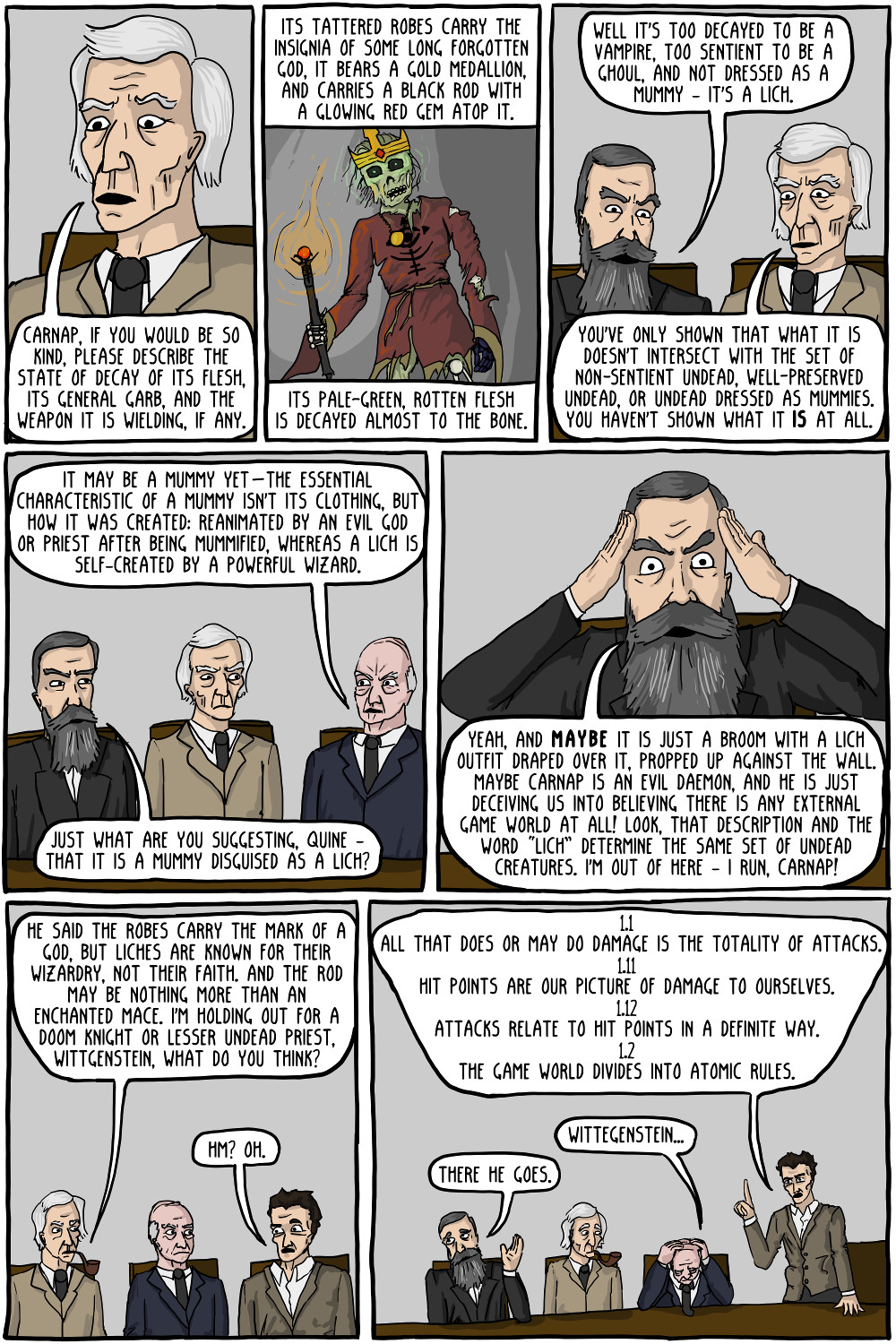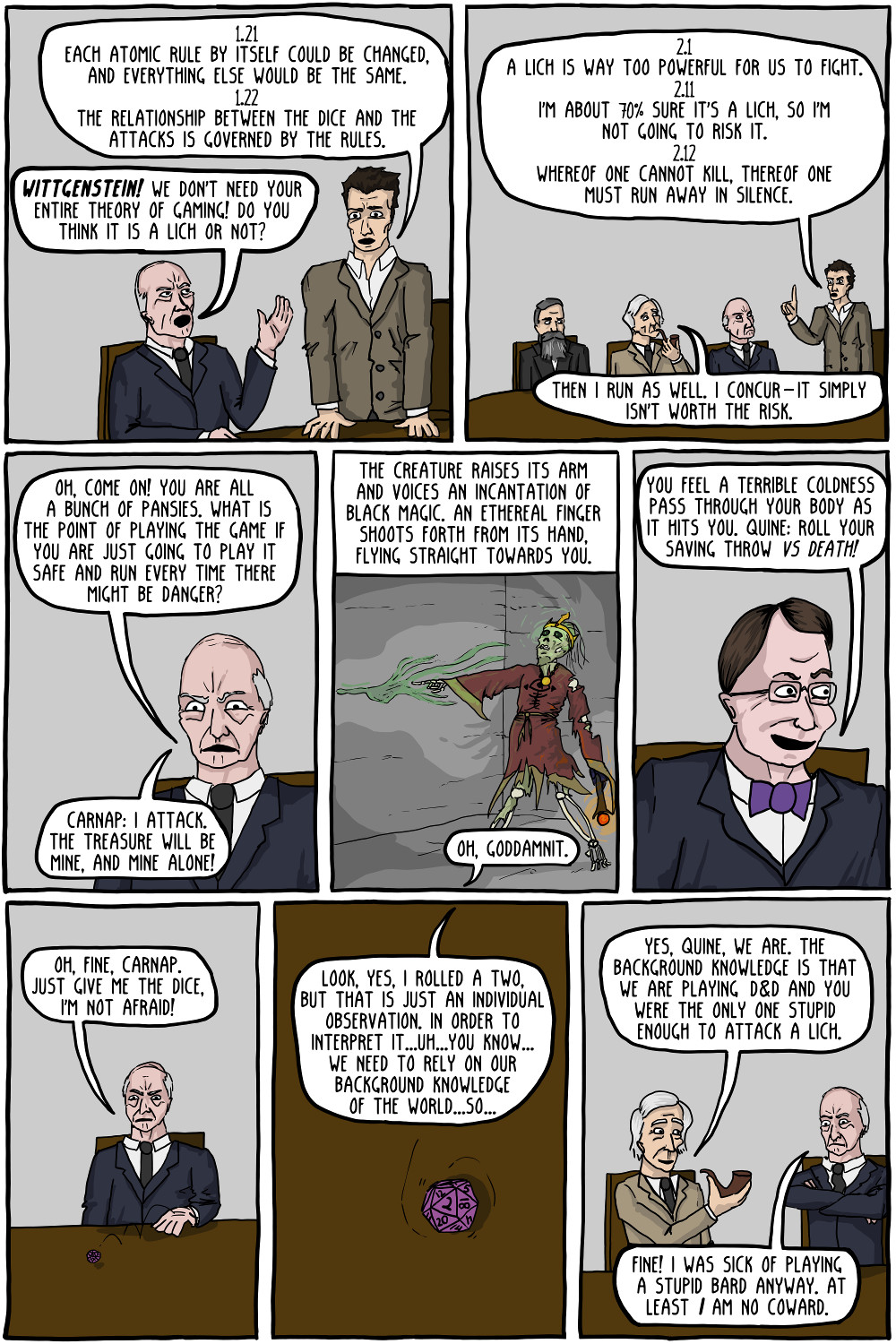


Carnap was a logical positivist who believed that the only meaningful statements were those that could be empirically verified.
Gottlob Frege was a mathematician and philosopher, who worked on set theory and symbolic logic. His blurb refers to the fact that he was a mathematical Platonist, which means he believed mathematic propositions must in some way refer to abstract mathematical objects that actually existed in some sense.
Bertrand Russell's blurb refers to Russell's Paradox, which asks whether or not the set of all sets which do not contain themselves contains itself. If it does then it doesn't, and if it doesn't then it does. This undermined much of Russell's work as he was attempting to found mathematics in logic, using set theory heavily. It also undermined much of Frege's work along similar lines in Foundations of Arithmetic. It is said that he literally ran to stop the presses of the book when he received Russell's letter explaining the paradox, and he eventually agreed to publish the book with an addendum, admitting the flaws caused by the paradox. In Dungeons and Dragons, a bag of holding is a magical bag that has more space inside than the size of the bag. It accomplishes this by opening a small portal to another dimension. A portable hole is a similar item that opens a hole where you throw it, and works by similar means. If you throw one into the other it creates an impossible situation where the extra planes collide and both are destroyed.
Quine's blurb refers to his most famous work The Two Dogmas of Empiricism, which questions the long held analytic/synthetic distinction, and the idea that all knowledge is reducible. He had a more holistic theory of meaning and knowledge, which says that we use our background knowledge to interpret any new knowledge or data that we encounter. New discovers must have an effect on the entire network of knowledge, rather than just overturning a single data point within it. He was a strong critic of the type of logical posivitism that Carnap and other championed.
Wittgenstein's blurb refers to the fact that he believed most or all of the problems of philosophy were really just problems of language. Many of the problems in fields such as metaphysics would be dissolved entirely if language had a precise meaning, and philosophers who argue over such problems are only arguing semantics. He dialog is a parody of his only published work, Tractatus Logical-Philosophicus. Many of the lines coorespond directly to the lines in the book, including the final line, which is a parody of the book's final and most famous line: "Whereof one cannot speak, thereof one must be silent."
Permanent Link to this Comic: https://existentialcomics.com/comic/28
Support the comic on Patreon!










